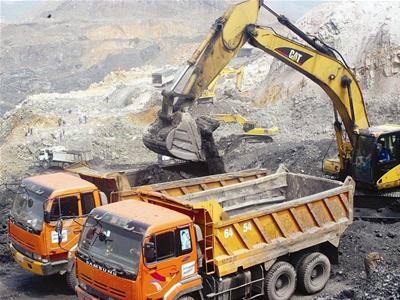
| Coal prices will rise for industry | |
Viet Nam Coal and Mineral Industries (Vinacomin) Group will raise slag prices for three major producers of cement, paper and fertiliser effective immediately and be allowed to sell at market prices as of the second quarter of next year, under a plan approved by the Ministry of Finance. Under Directive No13564/BTC-QLG, the price of slag will be allowed to climb to a level that allows coal producers to cover production costs. The price of coal to be sold to fertiliser manufacturers will also be raised to levels equivalent to 81 per cent of production costs. The price of coal sold to electricity producers, however, will remain capped, according to the directive, although the ministry has established a roadmap to govern both the coal-price and electricity-rate increases during next year. To stabilise consumer prices of essential goods on the domestic market, the Government has instructed Vinacomin not to raise coal prices since early this year. Therefore, the prices for coal paid by Vinacomin’s major customers – the nation’s leading electricity, cement, paper and fertiliser companies – are currently equal to only 38-79 per cent of production costs, depending on the type of coal. The prices paid by these four major producers are also equal to only 30-60 per cent of retail market prices, much lower than the export prices of coal. Because Vinacomin currently sells coal to domestic consumers at prices lower than the production costs, it has to ramp up exports to offset domestic losses. Industry experts warn, however, that this threatens the nation’s energy security, as domestic coal supplies may not be sufficient to meet demands by 2012. According to Vinacomin estimates, for the electricity industry alone, the country will need roughly 6.48 million tonnes of coal in 2008, 15.3 million tonnes in 2010, 32.5 million tonnes in 2012, 43.9 million tonnes in 2015 and 45.46 million tonnes in 2020. The Ministry of Finance has agreed that, if Vinacomin does not raise coal prices soon, unbearable pressures will result in even more substantial increases during 2009. | |
| VNS |
